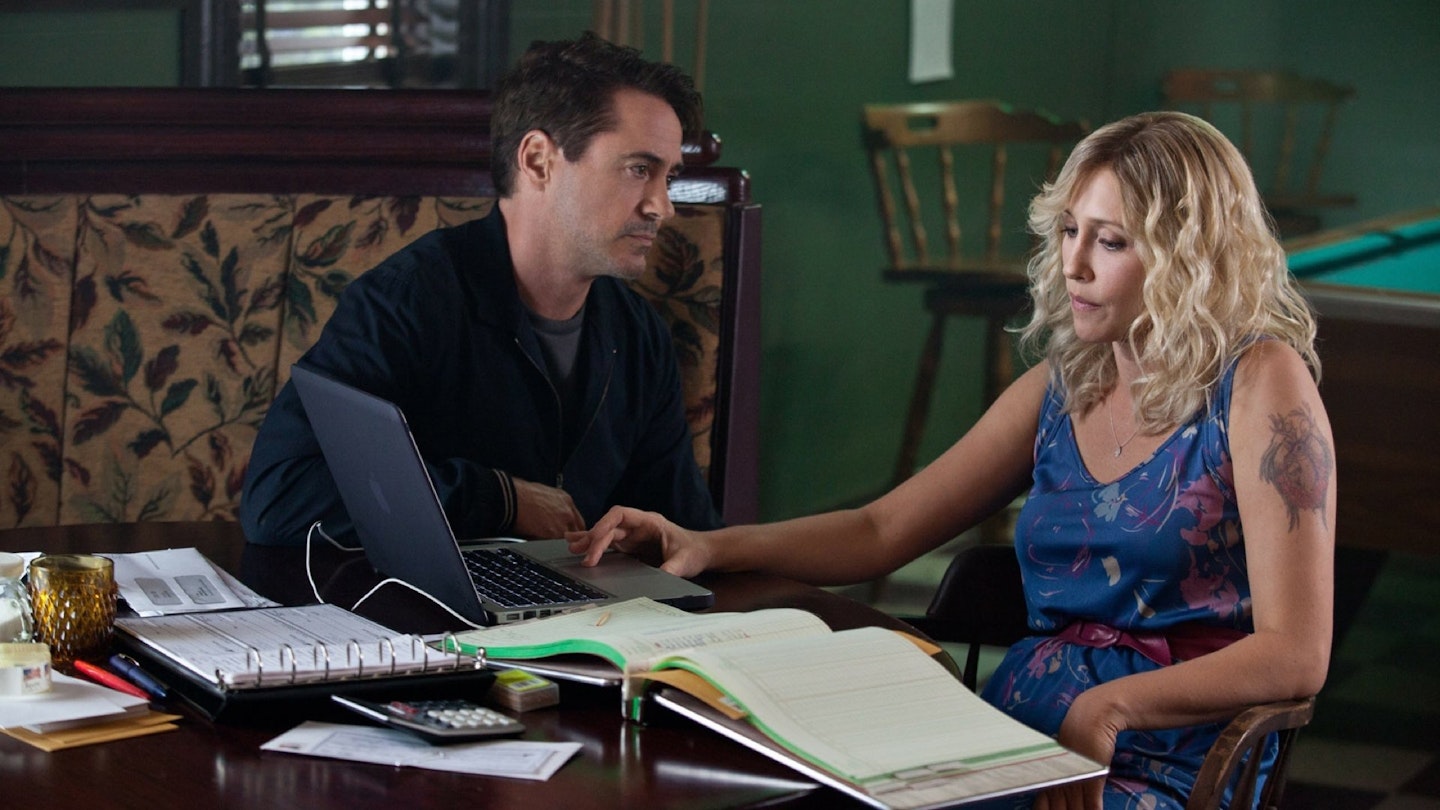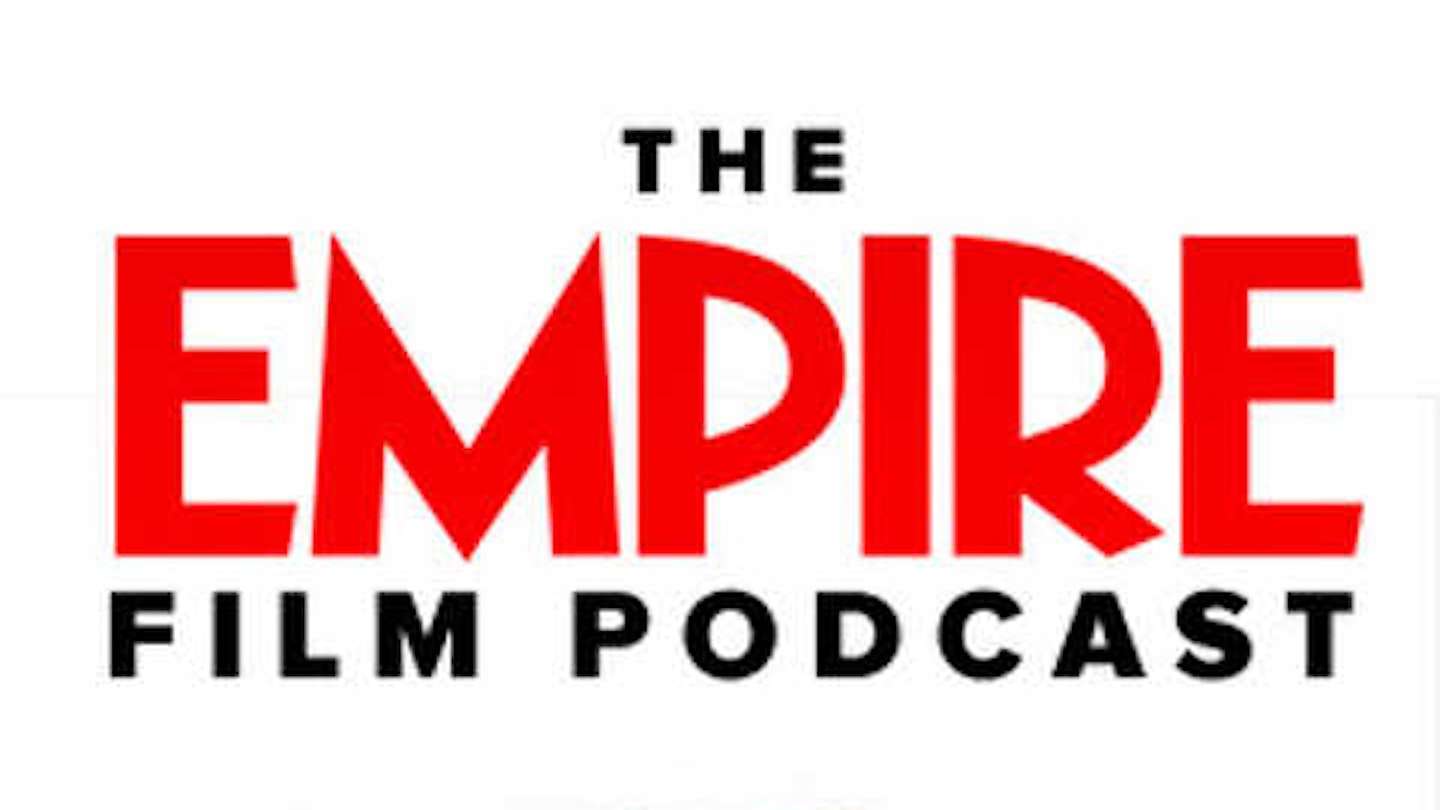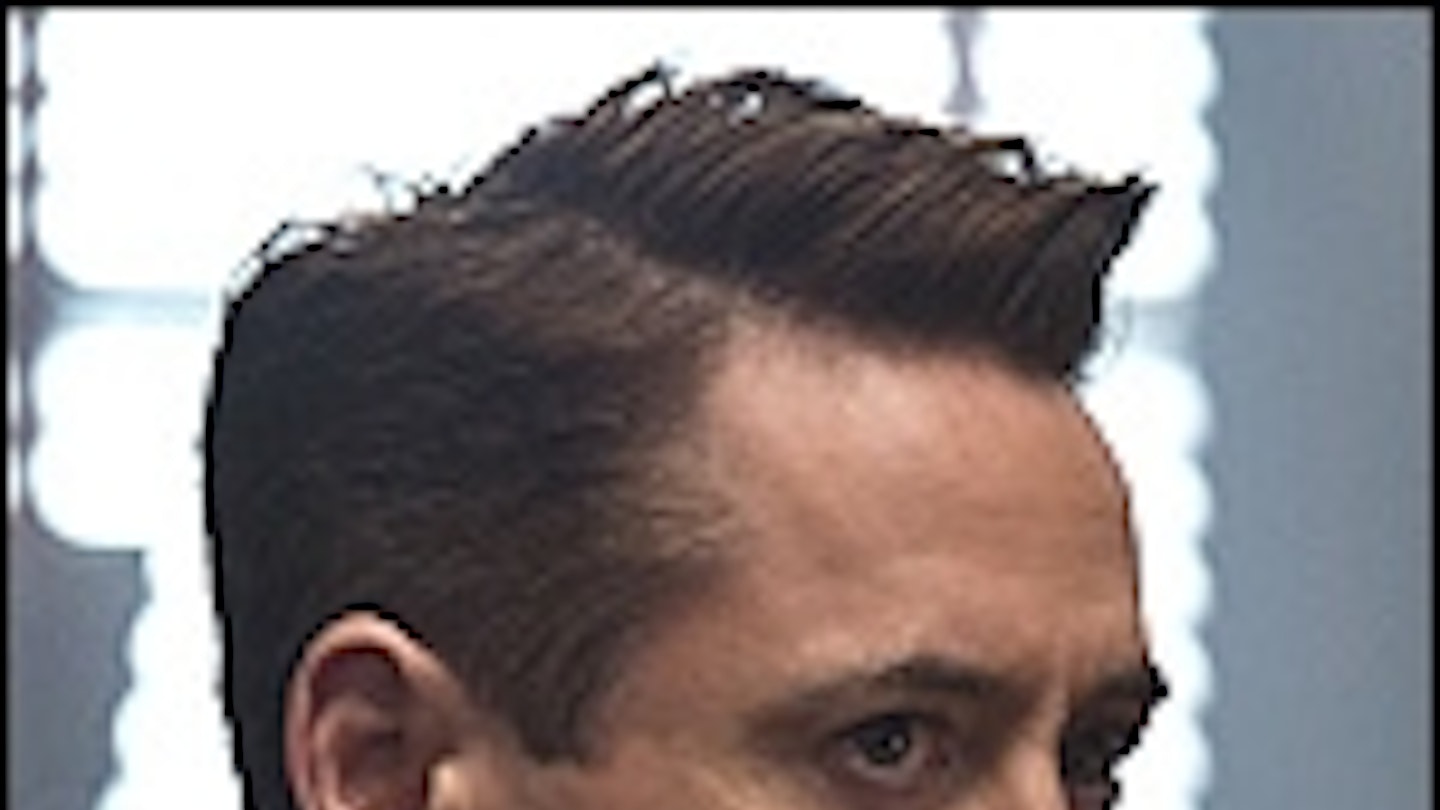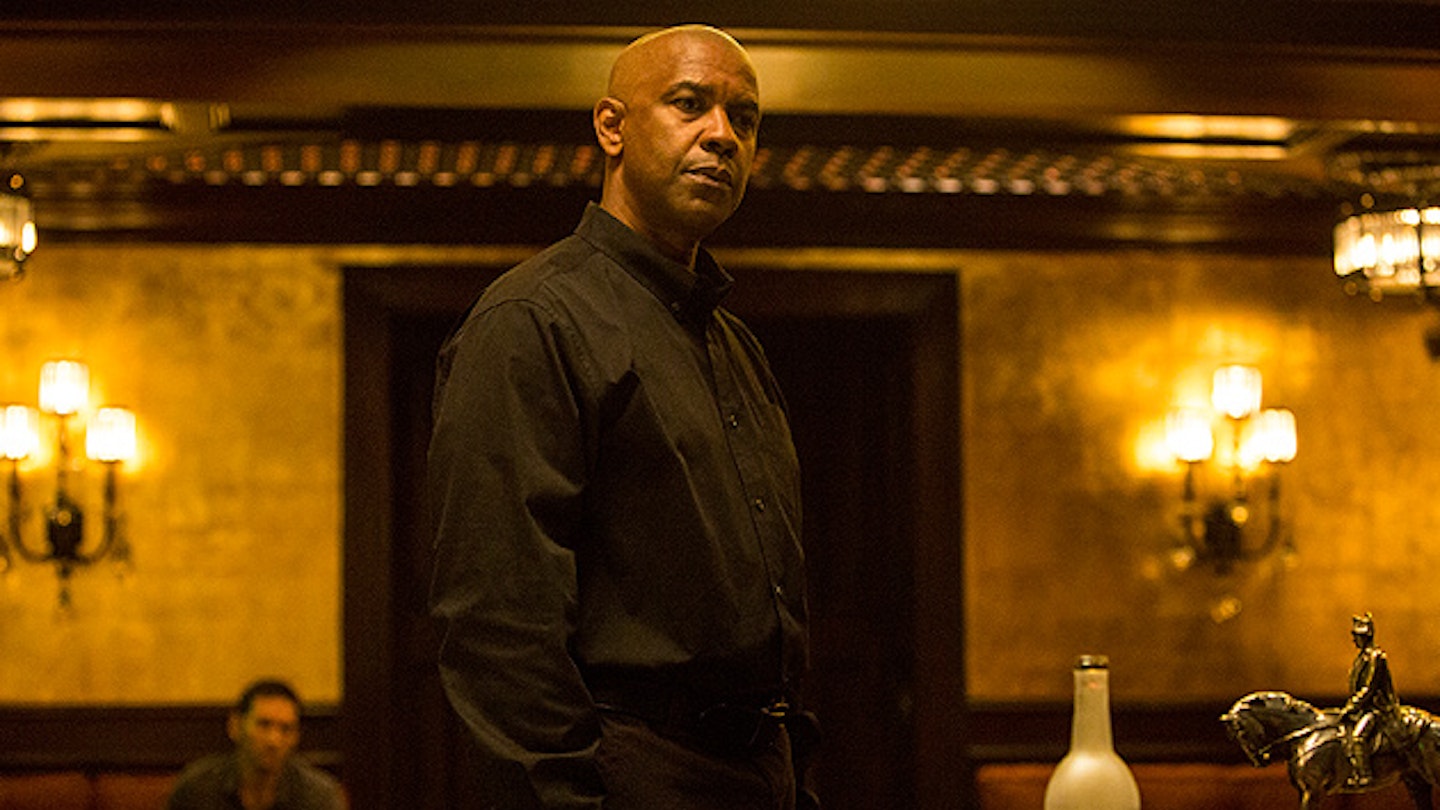Ever since Kiss Kiss Bang Bang launched his box-office renaissance nearly a decade ago, Robert Downey Jr. has become a human synonym for all the things that Hollywood considers edgy, quirky, and even bizarre. But the most surprising thing about The Judge is how little it delivers on that particular front. Its main peculiarity is that it is not peculiar at all; if anything, it is a rather old-fashioned film, seemingly teleported from another dimension where it is still the ’90s and Downey Jr. transitioned straight from Chaplin into the slick, airbrushed leading man he was originally intended to be.
Indeed, if it weren’t for the casting, The Judge might not be very memorable at all. From the set-up, it promises to deliver a tense, twisty, John Grisham-style courtroom drama, with Downey Jr.’s amoral black sheep lawyer having to defend his virtuous, principled father against a damning set of clues that point to manslaughter at the very least. Instead, however, the trial is a sideshow to the real story, a kind of wayward melange of Doc Hollywood and On Golden Pond that frequently teeters on parody in its wholesome portrayal of down-home American life.
Although there is a wealth of supporting players — Billy Bob Thornton as incoming prosecutor Dwight, Vincent D’Onofrio as Hank’s sensible brother Glen, and Vera Farmiga as his former sweetheart Sam — The Judge is really about a long-simmering dispute between father and son. And given the heft of those two players, notably Duvall, who shows no sign of burnout in the last strait of a very distinguished career, that’s quite an enticing prospect.
The fireworks come in fits and starts, and Downey Jr. is especially convincing as the whip-smart lawyer who is flashy and cynical without ever becoming seedy. Duvall, too, brings complexity to Joseph, a man who barely makes eye contact with his son yet shows a big heart to Hank’s young daughter. But when the two come together, that Big Scene never materialises, almost as if, in their exhaustive bid to cover all the awards-season bases, the scriptwriters came up with everything except some great dialogue.
The most squandered opportunity of all, however, is Thornton’s elegant Dwight Dickham, whose legal skills match Hank’s. Again, nothing really comes of it; when things start getting interesting in the courtroom, legal highs soon get pushed aside for yet more airing of dirty family laundry.
Ultimately The Judge doesn’t really know quite how to assert what it actually is, which is never more acute than in a scene where Joseph collapses in the bathroom, shit running down his leg. This would be heavy stuff even for an indie, but soon the tone is back to its usual, oddly jarring jauntiness, with bonding moments, wistful musings, and a completely ill-conceived subplot involving a girl who may or may not be Hank’s daughter.
It’s unfair to dump all the blame on one man’s door, but it does seem pertinent to suggest that David Dobkin might not have been the right director for this, having spent most of his time making rosy, male-centric comedies. Nevertheless, for all its duff notes, The Judge does show what a talent we have in Robert Downey Jr., and it could just be that its anodyne tone is proof that Downey Jr. is the Benjamin Button of Hollywood divas, getting more and more normal as the years go by.




